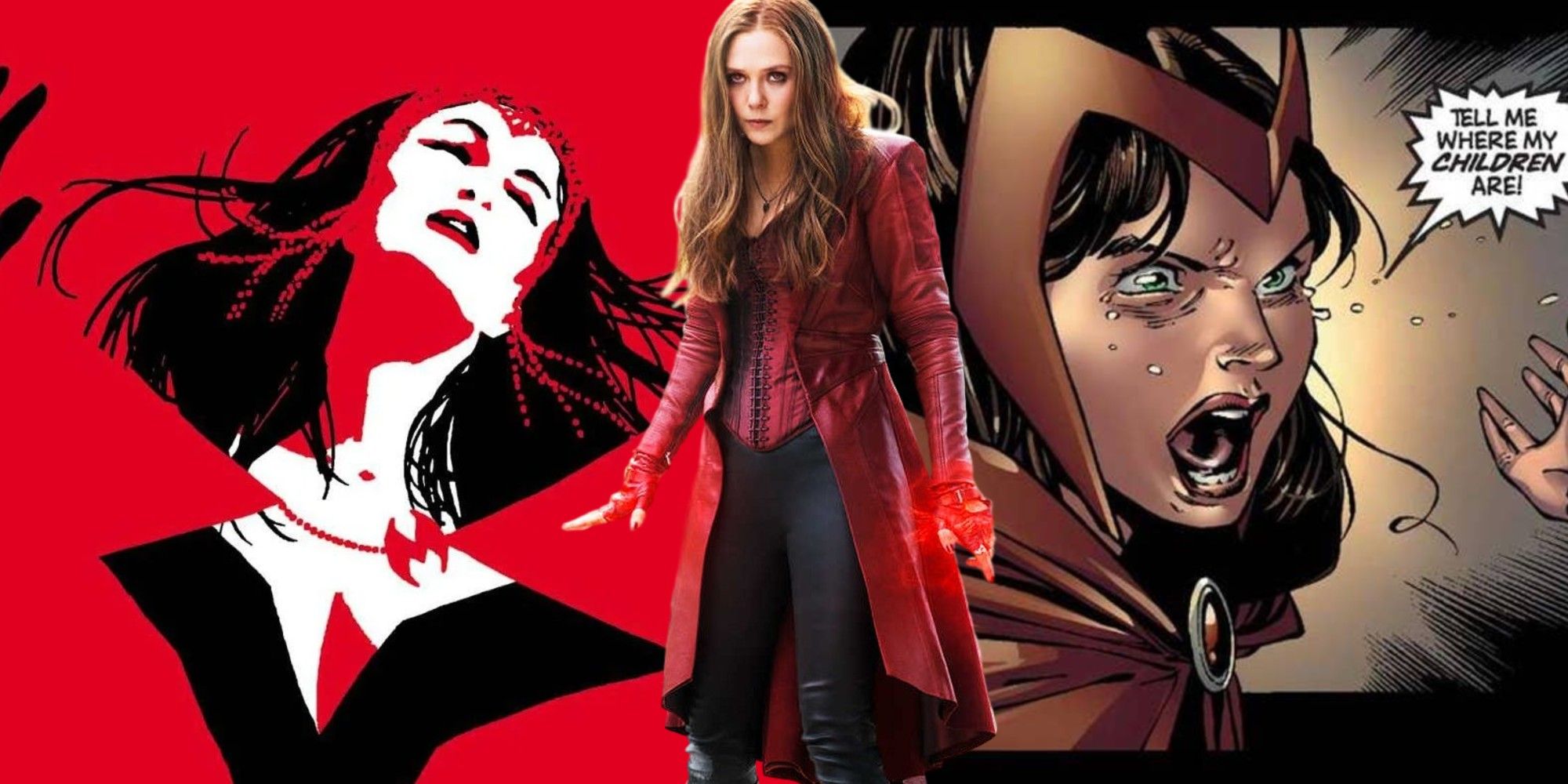
The following contains spoilers for the first 8 episodes of WandaVision.
Wanda Maximoff (Elizabeth Olsen) is not who she seems. The first Disney+ series of the Marvel Cinematic Universe (MCU), WandaVision, has been unraveling layers of Wanda as it jumps between tributes of American sitcoms. In these episodes, Wanda has become the quirky magical housewife of Bewitched and the overworked frumpy mother of Modern Family, primarily in an effort to avoid facing who she is and what she’s lost. But in Episode 8, “Previously On,” the newly revealed witch Agatha Harkness (Kathyrn Hahn) takes Wanda on a tour of her memories.
Not only does this episode see Wanda reliving past traumas, but it also demonstrates that her superpowers were not caused by HYDRA experiments with the Mind Stone, as previously thought, but rather unlocked by them. “Previously On” reveals Wanda even had powers as a young girl, making Agatha conclude Wanda uses “chaos magic” and is a prophesized sorceress known as “a Scarlet Witch.”
RELATED: WandaVision: 10 Scarlet Witch Comics To Read As Companion Pieces For The Disney+ Show
The reveal ties Wanda back to her comic book origins. Not only in gaining the moniker of “Scarlet Witch” after being an Avenger without a “funny nickname.” Nor in the reveal of supernatural powers prior to HYDRA’s experimentations. But in the sheer fact of having a retcon in the first place. Retcons (or “retroactive continuity”) is when new information changes the record of previous events, such as WandaVision altering the story of young Wanda and Pietro from a Stark Missile in Avengers: Age of Ultron (2015) as an early, subconscious example of Wanda magically altering probability.
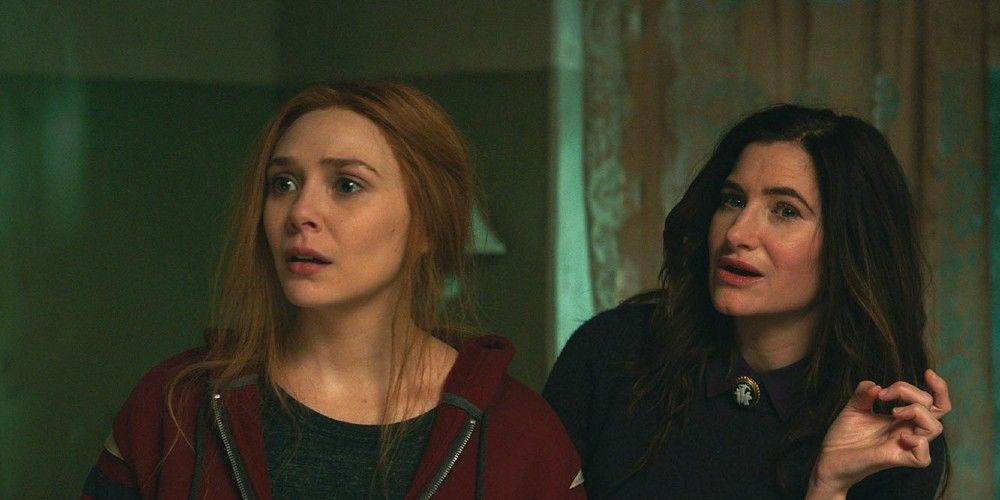
Comics are full of retcons, which expand, dismiss, or correct periods of character history. But few have had their continuity tweaked like the Scarlet Witch, whose origins and powerset have been changed multiple times. Age of Ultron itself led to another retcon of Wanda within Marvel Comics. So while WandaVision expands upon Wanda’s backstory to align itself with the comics, the fact it is using retcons to do so is already extremely faithful to the source material.
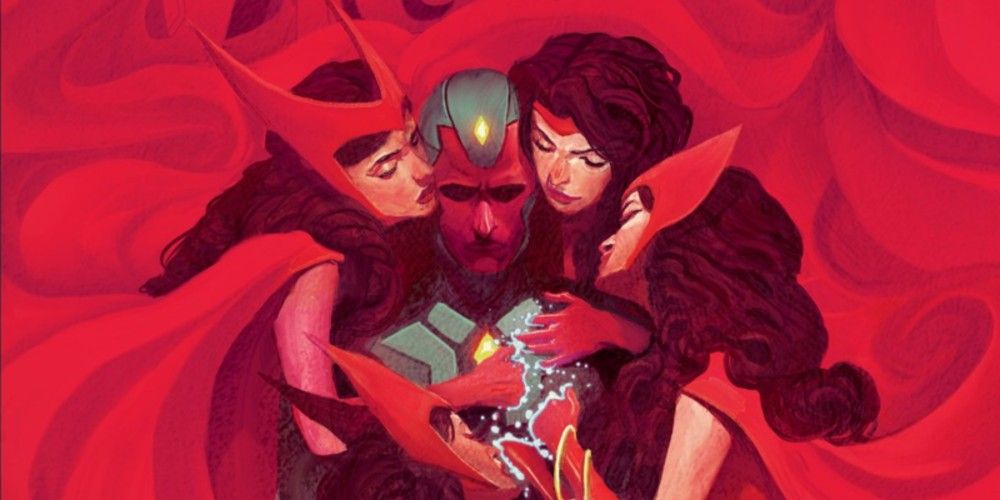
When she debuted in 1964’s X-Men #4, the Scarlet Witch and her twin brother Quicksilver were simply mutant followers of Magneto and his “Brotherhood of Evil Mutants”. Stan Lee infamously created “mutants” so he wouldn’t have to think up individual origin stories. While Pietro had superspeed, Wanda had vaguely-defined “hex powers” which primarily appeared to affect other’s luck. Although the two were more sympathetic than other Brotherhood members, indebted to Magneto for saving them from an angry mutant-hating mob. A few issues later, in X-Men #11, they abandoned Magneto and signed up for the Avengers with Captain America and Hawkeye (affectionately known as “Cap’s Kooky Quartet”).
After a hiatus, Wanda returned to the Avengers as a powerful member, developing a relationship with the android Vision. But as time went on, her vaguely-defined powers began to fluctuate. She became able to focus her mutant “probability powers” into “hex-bolts”. Later, she learned additional magic from the comics’ Agatha Harkness in addition to her mutant powers, living up to her “witch” title. It was then retconned that Wanda’s mutant powers were not “hex magic,” but the innate ability to tap into magical energy sources.
There were differing accounts of Wada and Pietro’s parentage. For a short time, the Golden Age superheroes Whizzer and Miss Americana were their parents. But this was later retconned as a lie, and The Vision and the Scarlet Witch #4 confirmed that Magneto and his late-wife Magda were their parents. The twins had been left by Magda in the care of the High Evolutionary and the half-cow nursemaid Bova. Although, as we will see, this was also retconned away, Wanda’s relation to Magneto was canon for decades and a detail that stuck with the Maximoff twins. It has been featured in multiple animated adaptations, and Quicksilver was confirmed as the son of Magneto in X-Men: Apocalypse (2017). It was a change that linked Wanda back to the X-Men and mutant community.
Alongside this were alterations to the specific roots of Wanda’s powerset. Avengers #187 revealed that, as a baby, the Elder God Chthon saw Wanda’s potential and infused her with magical energy at an early age, thereby guiding her latent mutant abilities down a magical path. Wanda shifted from “hex magic” which affects probability, to the broader usage of “chaos magic.” That is, until Avengers: Disassembled infamously had Doctor Strange explain “chaos magic” did not exist, and that Wanda’s mutant powers were warping reality. In a way, it was appropriate, given how often Wanda’s character history has been distorted.
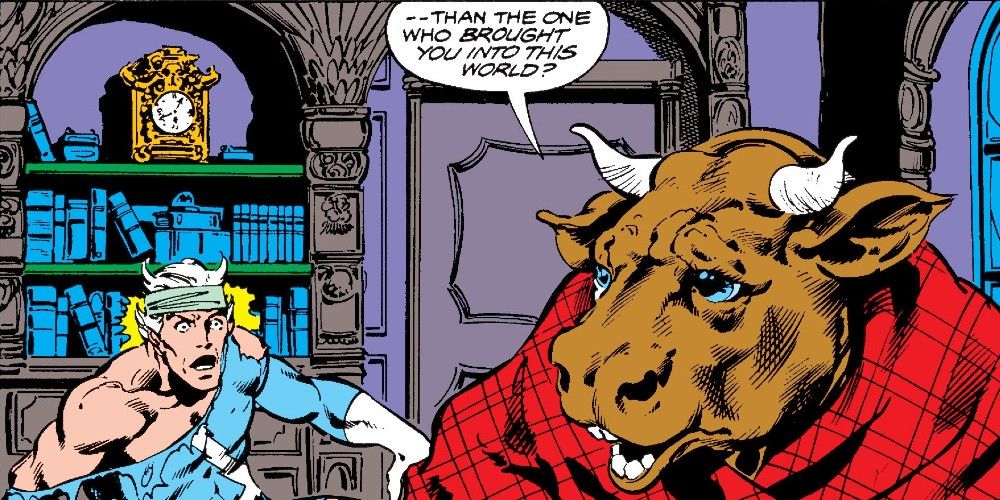
This isn’t even touching upon the complicated saga of Wanda and Vision’s children, Billy and Tommy, who were alternatively the result of Wanda’s powers, the influence of Mephisto, and the influence of supervillain Immortus. After the children ceased to exist, Agatha Harkness made Wanda forget about them. But since then, Wanda had both been shown remembering and healthily mourning them (as in Avengers West Coast Annual #9), and “remembering” this incident again and being driven insane, causing Avengers: Disassembled and House of M.
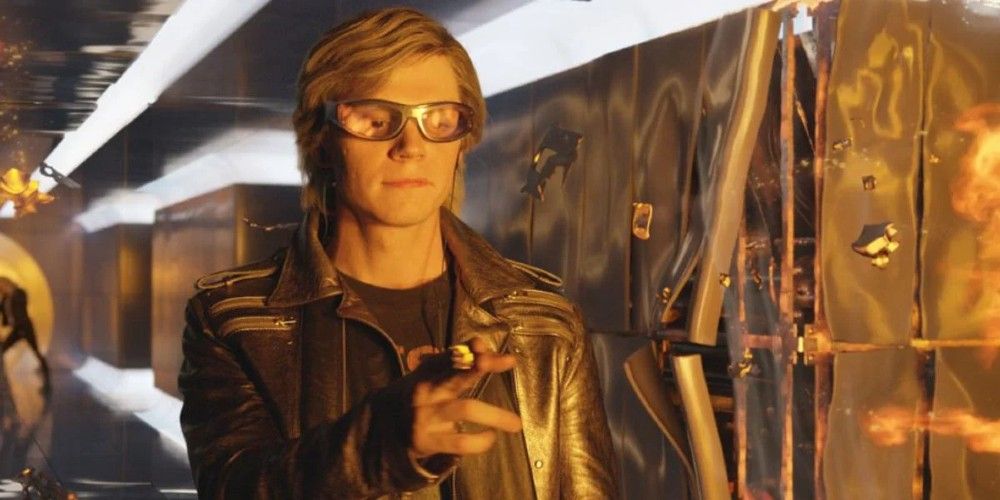
When adapting the Scarlet Witch for the big screen, Wanda was caught between Disney and Fox. While Fox has the rights to the X-Men and mutants, which Wanda and Quicksilver qualified as, Disney claimed the pair were more associated with the Avengers. The studios agreed to “share” the characters, so long as each didn’t reference the other franchise. So, Quicksilver (Evan Peters) and an unnamed younger sister appeared in X-Men: Days of Future Past (2014) as a mutant who rescues Magneto (Michael Fassbender) from prison. And Wanda and Pietro (Aaron Taylor-Johnson) appeared in Age of Ultron a year later, ostensibly as the result of HYDRA’s experimentation, with this Pietro dying from a hail of bullets. It appeared Disney and Fox had divided the Maximoff twins between them.
However, this ownership was unequal given Disney also owned Marvel Comics, which were changed for the sake of corporate synergy. Alongside expanding the presence of Inhumans to potentially “replace” the X-Men, Scarlet Witch and Quicksilver’s connections to mutant heritage were removed. First, it was retconned they are not actually Magneto’s biological children. It’s also revealed the High Evolutionary experimented upon them as children, which is what gave them powers. So although still superhuman, the Maximoff twins are no longer born “mutants” but genetically-engineered “mutates”, a small superficial detail which nevertheless distances the characters from mutant society.
Wanda’s “new” origin was further explored during James Robinson’s 2015-2017 Scarlet Witch run. Here, she comes to understand “the Scarlet Witch” is a legacy title, with her true mother Natalya Maximoff coming from a long line of magicians. So, Wanda’s origin is less biological than mystical, inherited from her magical bloodline. This appears to be what WandaVision aligns with, as HYDRA’s experiments (like the High Evolutionary’s) only exacerbate abilities already dormant in Wanda, pushing her towards the destined mantle of “Scarlet Witch”.

Adaptations can select and streamline such convoluted character history. In comics, the weird and wonderful thing is that, usually, all this contradictory backstory simultaneously exists. For instance, House of M had Wanda eradicate most of the world’s mutant powers in a fit of self-hating rage. However, due to these retcons, Wanda is no longer a mutant herself. Therefore, in the current revamped X-Men books where mutants have formed a sovereign nation, the Scarlet Witch is considered a demonic figure responsible for mutant erasure, labeled as “The Pretender Wanda Maximoff”.
The real irony is that now such retcons were unnecessary. Marvel Comics changed Wanda’s origins to disassociate her from mutants and Magneto, owned by Fox, but now Disney owns Fox as well. WandaVision itself already referenced such schisms through casting Evan Peters as the resurrected Age of Ultron Pietro, even though the original casting was made so they wouldn’t cross over. It’s indeterminable whether Marvel Comics will change Wanda, yet again, to suit whatever happens in WandaVision. But its reality-hopping sitcom structure is an effective tribute to Wanda's shifting nature, showing that continuity is as much what is decided at the moment as what was already written down.
MORE: WandaVision: The Fan Focus On Big Cameos Undermines The Show’s Main Character

